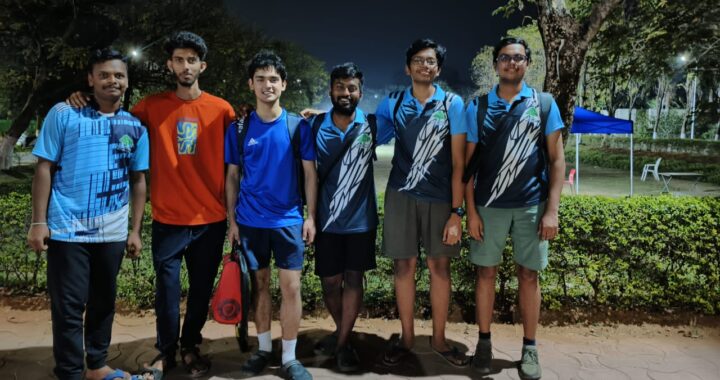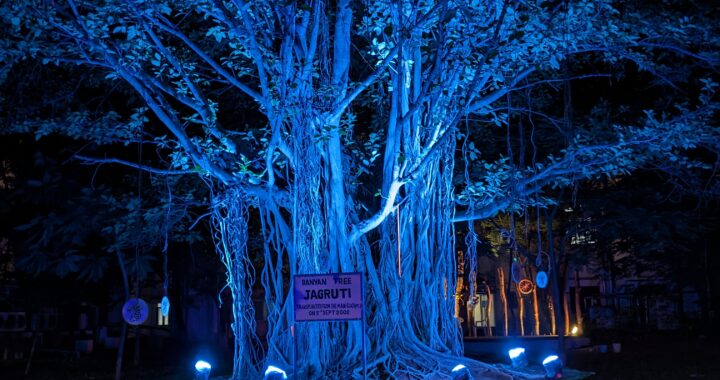DASA Concerns Due to COVID-19

Initial Confusion
The 14th March mail from the director asking students to leave for their homes probably raised more questions than it answered and definitely so, for the DASA students [note] DASA students refers to those students admitted through the ‘Direct Admissions for Students Abroad (DASA)’ mode of admission at IIIT-H. This mode of admission is open to students who hold a foreign passport or have passed their class XI and XII (or its equivalent) abroad[1] [/note] of the college. Being residents of different countries, lots of different issues plagued their minds on being asked to return home.
For some, going home was out of the question as their home countries had already shut down their airports (eg. Kuwait, Qatar, Saudi Arabia[note]
The airport in Saudi Arabia closed on 15th March at 11AM, a day after the announcement to return home was made by the college. However, it was impossible to book a flight to Saudi Arabia as flights were already full [/note], etc.), leaving them with little to no choice with respect to where they would be going.
Those who could fly, meanwhile, pondered if it was actually worth it to risk international travel. A common and probably the biggest concern amongst those who were considering flying back home was the possible inability to return to the college in case India shuts down its borders. A lot of students willing to fly back were also unsure if they would be able to do so due to visa issues as many countries, especially those in the Middle East, have very specific rules on the renewal of residence visas after a certain age. Most, however, were able to obtain a visa within 24-48 hours.
Furthermore, for students from certain countries, flying back was possible but didn’t seem viable given the grim situation in their home countries.
Attempts to Clarify Concerns
Various attempts were made to try and clear some of these confusions and gain some sort of clarity on what was to be done. Those who could not travel back home were left with no other choice but to either stay with relatives/friends or consider staying on campus. In several meetings with Prof. P Krishna Reddy (Chair of Council of Wardens) and Dr. Prabhakar Bhimalapuram (Warden of Bakul Hostel and Chair of Campus Health and Medical Committee), it was strongly suggested that students do their best to leave campus, even if it meant staying with distant relatives. It was pointed out that in case something were to happen to a student on campus, it would be extremely difficult to provide care for the student, as the nearest hospital with testing capabilities for COVID-19 was Gandhi hospital, 21km away. Adding to that, nothing could be guaranteed about the housekeeping services, messes, etc. at that point of time.
The following are excerpts from mails sent by Prof. P. Krishna Reddy and Dr. Prabhakar Bhimalapuram related to the above discussions:
The following groups of students are required to leave campus and go home: UG-1, UG-2, UG-3, UG-4, M.Tech-1, and M.Tech-2 batches. You may leave your processions in your room. Please vacate by Wednesday March 18, 2020. If you have any issues which do not allow you to vacate by deadline, please meet Chair-CoW on Monday March 16, 2020 at 10am at Palash Hostel Office.
The remaining group of students: MS, PhD and Dual Dgree students, who have registered for Thesis credits this semester can continue to stay in campus if they wish.
With best wishes for safe travels and health.
– Prof. P.Krishna Reddy
Chair-COW”
What Prof. P Krishna Reddy is clear, and is based on Directors’ email to IIITH community on Saturday: he reiterated the advice for all (including the research students): to leave the campus and go home; however the research students may choose the option of staying, after discussing with their advisor. Faculty advisors are requested _not_ to stop the research students who want to follow the Director’s advice to them and leave the campus; such students may continue their work from home.
UG-1,2,3,4, MSIT-1,2 and MTech-1,2 batches have to vacate, they do not have an option.
Hope that clears it up,
With best wishes and for health,
Prabhakar
A few students also mailed the college administration (including the dean and the director) with their concerns, which received prompt replies with the reassurance that DASA students will be kept in mind before taking any decision. Understandably, however, nothing concrete could be said about when the college would reopen and when students would have to return, casting shadows of doubt in the minds of those planning to fly home.
Weighing the Available Options
As leaving campus was strongly advised, students who could not fly back home were left with no choice but to move to a friend/relative’s place. While this would allow the students to return back to campus without much difficulty, it also meant that students would have to stay away from their immediate family for a prolonged period during testing times. Students were worried that they would carry the disease to their relatives’ place, especially those who would be going to the homes of elderly relatives. With the period of lockdown unknown, some students also felt that it would be a burden for them to stay with distant relatives for so many months.
Students who could fly back, meanwhile, had the option of waiting for a few days in hopes of gaining more clarity on the situation, with some being forced to do so in order to resolve visa issues. This approach, however, carried the risk of being unable to fly back in case airports were shut down. It turned out that time to take a decision was running out very quickly, as many countries, including those where a majority of the DASA students live, started to shut down their borders, eg. Saudi Arabia (15th March)[note]https://english.alarabiya.net/en/features/2020/03/14/Saudi-Arabia-bans-all-international-flights-starting-Sunday-What-happens-next- [/note] , Oman (18th March)[note] https://timesofoman.com/article/2928531/oman/government/coronavirus-oman-airports-announces-measures [/note] , UAE (19th March) [note] https://gulfnews.com/travel/coronavirus-these-passengers-can-still-enter-the-uae-even-after-travel-ban-1.70498355 [/note] , Bahrain(22nd March) [note] https://www.arabianaerospace.aero/gulf-air-temporarily-suspends-flights-to-and-from-several-destinations.html [/note] [note] Bahrain reduced its flights to India on 18th March, flying only to Mumbai [/note] , Singapore (24th March) [note] https://www.gov.sg/article/covid-19-travel-restrictions-for-foreign-visitors-entering-singapore [/note], and so on. In fact, there was more than one instance of a student catching the last flight back to their home abroad.
To most students, flying back immediately seemed to be the best solution as it would allow them to unite with their families. Furthermore, a good number of students also believed that their country promised a better healthcare system since it wouldn’t be as burdened as that of India. This, however, meant that the student would have to risk travelling internationally through some of the busiest airports in the world and would be unsure about when they would be able to return back to the campus. The latter would particularly be a problem if the institute was to resume classes on campus by the following month itself (a prospect that sounds ridiculous in hindsight, but was a very real concern given the circumstances at the time).
The Current Situation
On considering the aforementioned options, in a sample space of approximately 30 DASA students that usually live abroad, it was found that about 60% of them are currently in India. However, only 25% of those in India willingly chose to stay, while the rest were forced to stay as they had no means of flying back to their home country. This means that about 45% of all DASA students surveyed are currently unwillingly residing in India. In hindsight, almost all the students (roughly 94%) agree that flying back home (if airports were open) would have been the best course of action.
While some of the students who managed to fly back home had to undergo mandatory quarantine, all of them are happy to be with their families as uncertainty about the future continues to grow with each passing day. Almost all the students found themselves to be unaffected academically due to being in another country, other than the issue of not being able to collaborate with batchmates back in India over the phone, without having to use the internet. Although living in different time zones could have posed problems, the college ensured that no major issues were faced due to this by shifting the 8:30AM classes to 5:00PM.
The majority of the DASA students, however, are currently living in India, and have faced several difficulties.
Students have found themselves feeling stressed, uneasy, and worried as they find themselves separated from their family members in a different country. In some cases, students have found their families separated across multiple countries. The increasing number of COVID-19 cases in India as well as abroad and the unlikelihood of borders opening up in the near future has only added to this stress. Almost all the DASA students in India have expressed their desire to return to their home. Whilst one student has gained permissions from the concerned embassies, it has frustratingly not worked out.
A few students who had no option but to live with friends, wish to move out as they feel they are/would eventually be a burden, considering the fact that it has already been two months. However, there are very limited or almost no other options for such students. A student who had to resort to living with a friend, who himself lives alone in India, had to learn to cook daily meals as food delivery services were not available during the lockdown. Such difficulties for basic needs have only added to the mental strain on students facing such situations.
The repatriation program for Indians abroad (also known as the Vande Bharat mission) has provided a pathway for Indians abroad to return back to India. It has, however, received mixed reactions from the students, with some seeing it as an opportunity to reunite with at least a part of their family, while others do not consider it to be safe. The latter stems from the fact that among the people who flew back to India from the Gulf on the first few flights, 2 had tested positive for the virus. Nevertheless, the program offers a means for families to be able to reunite in India although most believe it is not without risk.
Conclusion
The pandemic has affected DASA students profoundly, especially those who are away from their families. Unfortunately, there is very little that could have been done or can be done to help resolve the problems that the majority of such students are facing. It can only be hoped that the crisis is resolved quickly and international borders open up so that those separated from their families can be reunited.

 The Mess-y Situation
The Mess-y Situation  Qu’ils mangent de la grenouille! (Let Them Eat Frogs!)
Qu’ils mangent de la grenouille! (Let Them Eat Frogs!)  Tale of Two Cheenties
Tale of Two Cheenties  Peace of mind.
Peace of mind.  Boats and Valorant
Boats and Valorant  Blessings
Blessings  A perspective on sports in IIIT
A perspective on sports in IIIT  Paintings of IIIT
Paintings of IIIT  The Tale of Jagruti
The Tale of Jagruti  Cleaning up the Mess?
Cleaning up the Mess?
1 thought on “DASA Concerns Due to COVID-19”
Comments are closed.